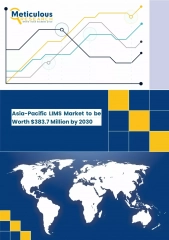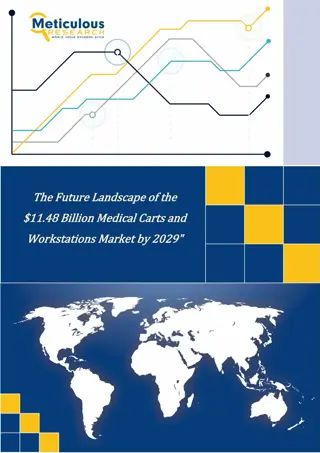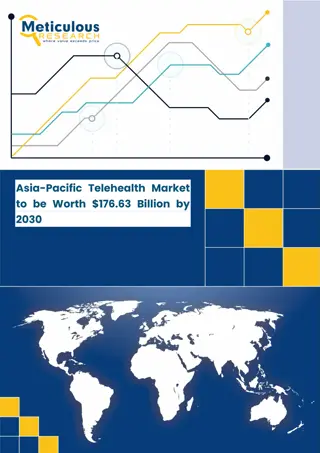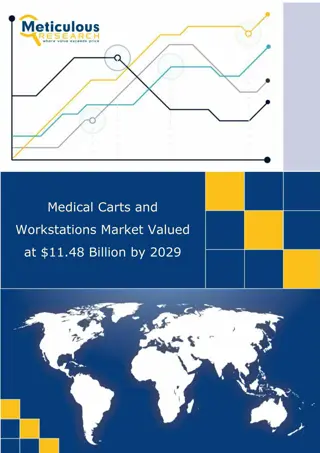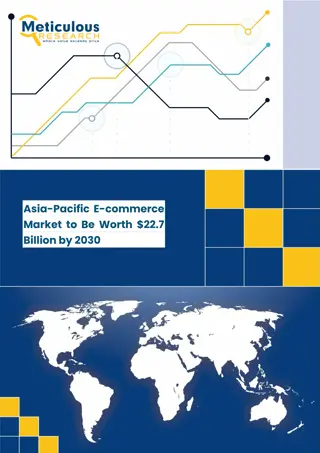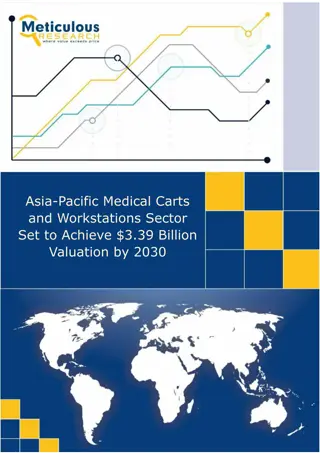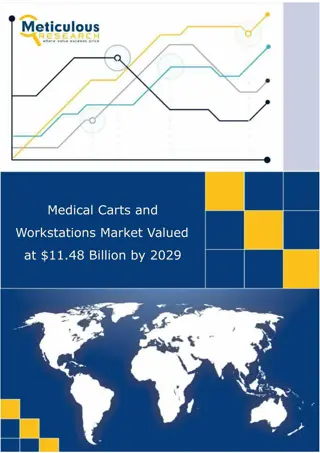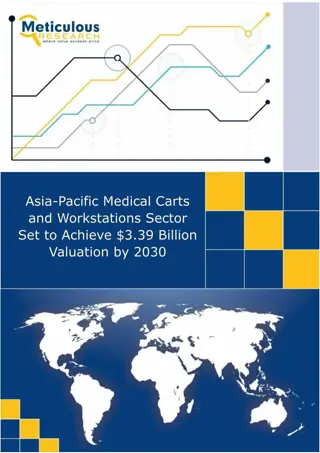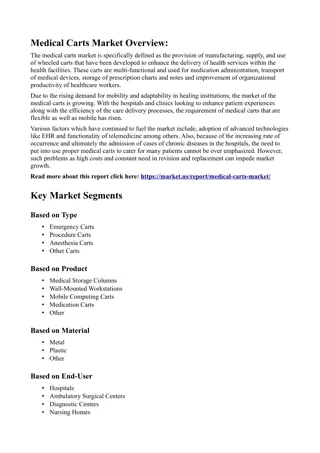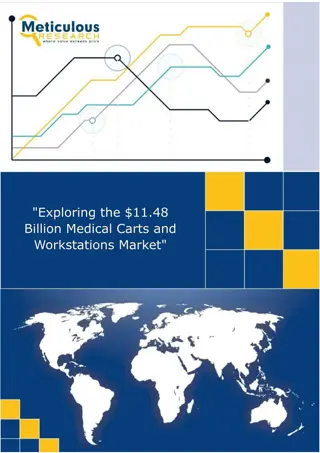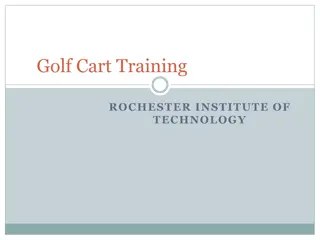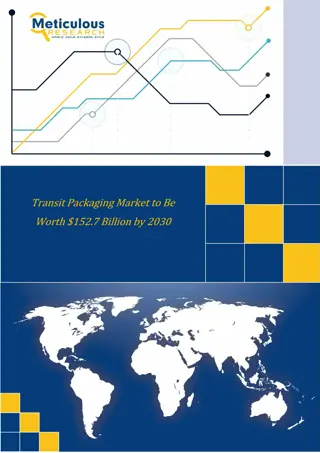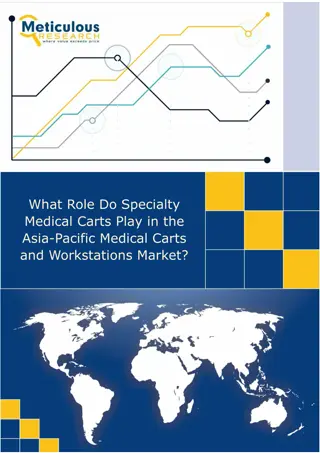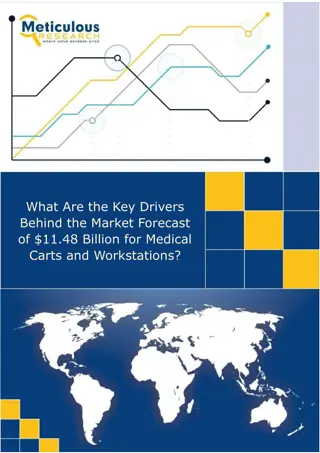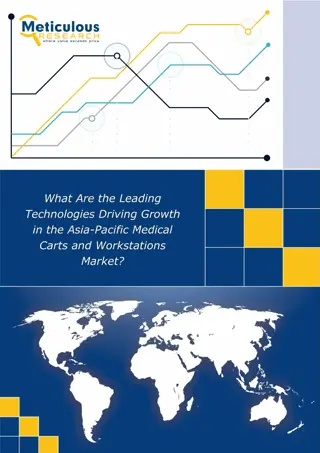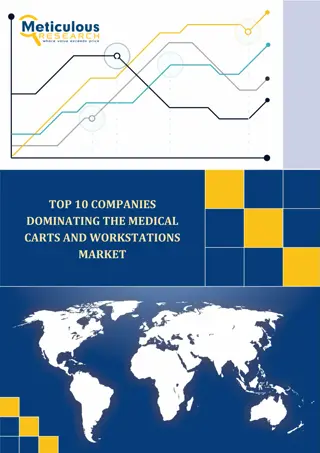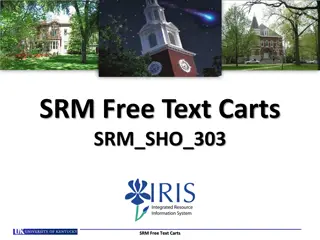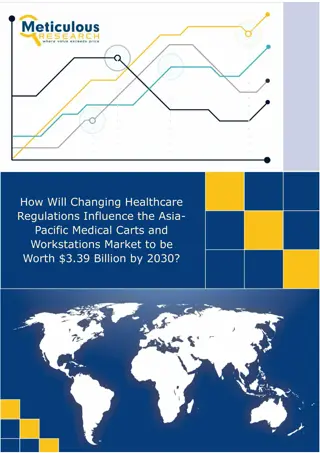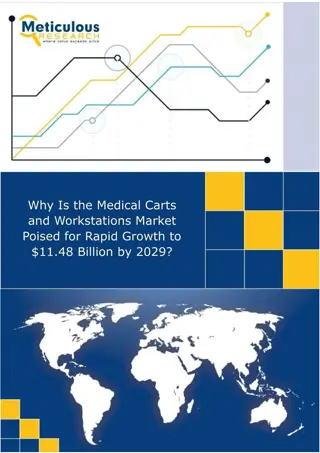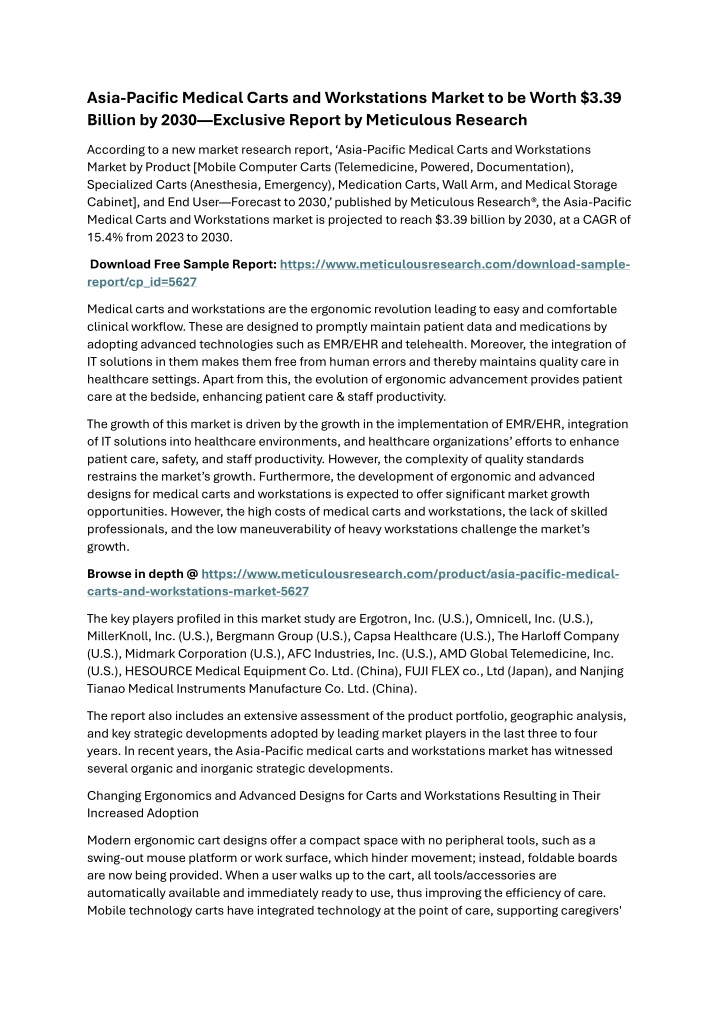
Asia-Pacific Medical Carts and Workstations Market to be Worth $3.39 Billion by 2030
Asia-Pacific Medical Carts and Workstations Market by Product [Mobile Computer Carts (Telemedicine, Powered, Documentation), Specialized Carts (Anesthesia, Emergency), Medication Carts, Wall Arm, and Medical Storage Cabinet], and End User
Download Presentation

Please find below an Image/Link to download the presentation.
The content on the website is provided AS IS for your information and personal use only. It may not be sold, licensed, or shared on other websites without obtaining consent from the author. If you encounter any issues during the download, it is possible that the publisher has removed the file from their server.
You are allowed to download the files provided on this website for personal or commercial use, subject to the condition that they are used lawfully. All files are the property of their respective owners.
The content on the website is provided AS IS for your information and personal use only. It may not be sold, licensed, or shared on other websites without obtaining consent from the author.
E N D
Presentation Transcript
Asia-Pacific Medical Carts and Workstations Market to be Worth $3.39 Billion by 2030 Exclusive Report by Meticulous Research According to a new market research report, Asia-Pacific Medical Carts and Workstations Market by Product [Mobile Computer Carts (Telemedicine, Powered, Documentation), Specialized Carts (Anesthesia, Emergency), Medication Carts, Wall Arm, and Medical Storage Cabinet], and End User Forecast to 2030, published by Meticulous Research , the Asia-Pacific Medical Carts and Workstations market is projected to reach $3.39 billion by 2030, at a CAGR of 15.4% from 2023 to 2030. Download Free Sample Report: https://www.meticulousresearch.com/download-sample- report/cp_id=5627 Medical carts and workstations are the ergonomic revolution leading to easy and comfortable clinical workflow. These are designed to promptly maintain patient data and medications by adopting advanced technologies such as EMR/EHR and telehealth. Moreover, the integration of IT solutions in them makes them free from human errors and thereby maintains quality care in healthcare settings. Apart from this, the evolution of ergonomic advancement provides patient care at the bedside, enhancing patient care & staff productivity. The growth of this market is driven by the growth in the implementation of EMR/EHR, integration of IT solutions into healthcare environments, and healthcare organizations efforts to enhance patient care, safety, and staff productivity. However, the complexity of quality standards restrains the market s growth. Furthermore, the development of ergonomic and advanced designs for medical carts and workstations is expected to offer significant market growth opportunities. However, the high costs of medical carts and workstations, the lack of skilled professionals, and the low maneuverability of heavy workstations challenge the market s growth. Browse in depth @ https://www.meticulousresearch.com/product/asia-pacific-medical- carts-and-workstations-market-5627 The key players profiled in this market study are Ergotron, Inc. (U.S.), Omnicell, Inc. (U.S.), MillerKnoll, Inc. (U.S.), Bergmann Group (U.S.), Capsa Healthcare (U.S.), The Harloff Company (U.S.), Midmark Corporation (U.S.), AFC Industries, Inc. (U.S.), AMD Global Telemedicine, Inc. (U.S.), HESOURCE Medical Equipment Co. Ltd. (China), FUJI FLEX co., Ltd (Japan), and Nanjing Tianao Medical Instruments Manufacture Co. Ltd. (China). The report also includes an extensive assessment of the product portfolio, geographic analysis, and key strategic developments adopted by leading market players in the last three to four years. In recent years, the Asia-Pacific medical carts and workstations market has witnessed several organic and inorganic strategic developments. Changing Ergonomics and Advanced Designs for Carts and Workstations Resulting in Their Increased Adoption Modern ergonomic cart designs offer a compact space with no peripheral tools, such as a swing-out mouse platform or work surface, which hinder movement; instead, foldable boards are now being provided. When a user walks up to the cart, all tools/accessories are automatically available and immediately ready to use, thus improving the efficiency of care. Mobile technology carts have integrated technology at the point of care, supporting caregivers'
highly mobile workflow. A computer mounted on a wall station allows the caregiver to sit or stand beside the patient while using it. This option allows the patient to view the screen while the caregiver explains their health and needs. It can be extended and moved to the patient by mounting the computer, which is more feasible than forcing the patient to move to the equipment. Request Sample Report : https://www.meticulousresearch.com/request-sample- report/cp_id=5627 The Asia-Pacific Medical Carts and Workstations market is segmented by Product Type [Mobile Computing Carts and Workstations (Computer Carts and Workstations {Powered Computer Carts and Workstations and Non-Powered Carts and Workstations}, Computing Medication Carts and Workstations, Documentation Carts and Workstations, Telemedicine Carts and Workstations, Other Mobile Computing Carts and Workstations, and Mobile Computing Cart and Workstation Accessories), Specialty Medical Carts and Workstations (Emergency Carts and Workstation, Anesthesia Carts and Workstations, Procedure Carts and Workstations, Other Medical Carts, and Workstations), Wall Mount Workstations (Wall Arms, Wall Cabinet Workstations, Wall Mount Workstation Accessories), Conventional Medication Carts, and Medical Storage Columns, Cabinets, and Accessories)], End User (Hospital, Long Term Care Facilities, Physician Offices/Clinics, Other End Users), and Geography. The study also evaluates industry competitors and analyzes the regional and country-level markets. Quick Buy @ https://www.meticulousresearch.com/Checkout/19477113 Among the geographies, in 2023, Japan is expected to account for the largest share of the Asia- Pacific medical carts and workstations market. The segment s largest share is attributed to the country s focus on a patient-centered approach. The country promotes data and technologies for creating a next-generation healthcare system, making it a highly attractive market for investments and collaborations. For instance, the Next-Generation Medical Infrastructure Law (NGMIL) was enacted in May 2017 in Japan. Contact Us: Meticulous Research Email-sales@meticulousresearch.com Contact Sales- +1-646-781-8004 Connect with us on LinkedIn-https://www.linkedin.com/company/meticulous-research

